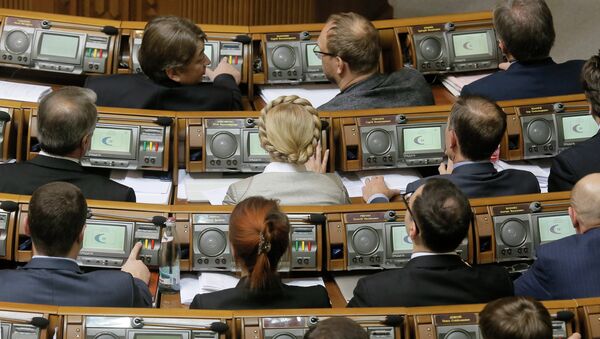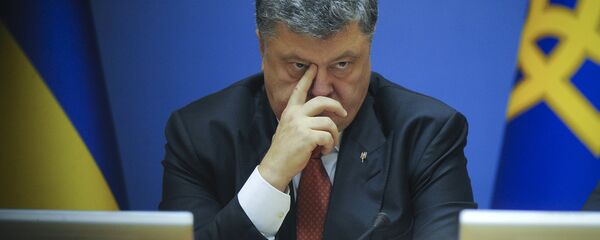Citing Ms. Tregub's post in social media, Ukraine's UNIAN Information Agency explained that the official was concerned with the troubling brain drain of qualified officials out of the country due to low salaries.
"I feel like crying when I recall that this month was supposed to see an additional 90 million [euros, presumably] in payments to the salaries of the reformers in the civil service from EU funds, which the Yatsenyuk government decided to redirect to other projects," Tregub wrote. "Now we are talking about the postponement of funding until 2017," she added.
"Half of the young and talented cadres in my department have already fled to foreign countries due to lack of funding," Tregub complained.
The new law saw officials' salaries raised by 10%, introducing a bonus system. Designed to transform the country's system of civil servant payments to the European model, the civil service reform is expected to be completed by 2018.
Ukrainian officials themselves have debated the issue of civil service salaries at length, many hoping that salaries will eventually be raised to European levels. Last month, President Poroshenko promised that justices of the Supreme Court will have their salaries raised to over €11,000 a month, becoming some of the highest paid justices in Europe, while civil servants of various ranks are expected to get a salary raise to between €700 and €1,500, up from about €215 now. As of April 2016, Ukraine's average salary is 4,895 hryvnia, or €175, with pensioners receiving 1,600 hryvnia, equivalent to about €57.
Pending successful negotiations with the European Commission, Brussels may soon be spending Europeans' tax money to help pay Ukrainian officials' salaries.
"By and large, the EU has been completely disillusioned in Ukrainian authorities' ability to do what they are told and what they have been paid for," the commentator noted. "Therefore, they are now trying to take complete control into their hands."
"At first they attempted to implement a Georgian-American-Baltic [style management. Now they've decided to create a 'council for reforms', inviting Poland's Leszek Balcerowicz and Slovakia's Ivan Miklash" to manage it.
If in the past, it was considered trendy to think that Ukraine was ruled from Moscow or from Washington; now, Skachko explained, it's the "Brussels' Obkom's" turn.
"There's nothing to be surprised about here," the commentator suggested. "Ukraine's political elite does not have a statist instinct. They are only capable of fulfilling someone else's orders. This is an attempt to apply the Georgian option, where the police was funded by George Soros, onto Ukrainian soil. But Georgia is a country with 3 million people, while Ukraine has 40 million. It's true, the country is down and almost out, but we have enormous infrastructure, which has yet to be finished off. It seems this is the purpose" of such efforts.




